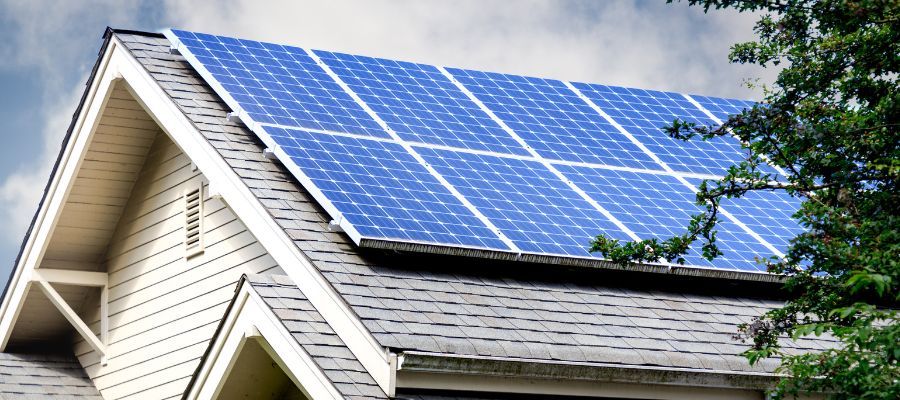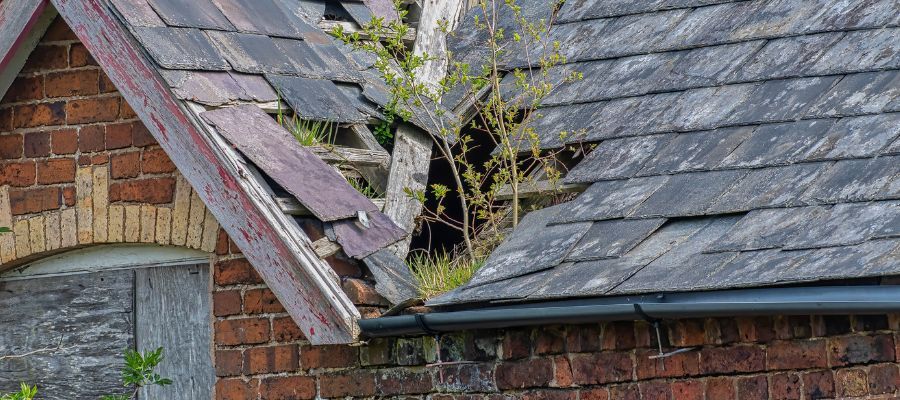Solar Panels and Roofing: What Homeowners Need to Know

At Repair First Roofing, we understand the importance of a sturdy and long-lasting roof for your home. While solar panels offer numerous benefits, their installation can have implications for your roofing system. In this blog post, we aim to guide homeowners on what they need to know about solar panels and roofing to ensure the longevity and integrity of their roofs.
1. Roof Assessment is Key: Contact Repair First Roofing for a Free Roof Inspection
Before you decide to go solar, it’s crucial to assess the condition of your roofing. A professional roof inspection can provide you with valuable insights and peace of mind. Here’s why you should consider reaching out to Repair First Roofing or scheduling a free roofing inspection online:
a. Roof Age
The age of your roof is a critical factor in the solar panel decision-making process. If your roof is approaching the end of its expected lifespan, installing solar panels can become more challenging. Solar panels typically come with a lifespan of 25 years or more. Therefore, it’s vital to ensure that your roof can endure just as long to maximize the return on your solar investment.
b. Roof Material
Different roofing materials have varying degrees of compatibility with solar panel installations. While materials like asphalt shingles and metal roofs are typically good candidates for solar panel installations due to their durability and ease of installation, fragile materials such as wood or slate may require extra care or alternative installation methods.
c. Roof Condition
Inspecting your roof for any existing damage, leaks, or structural issues is a crucial step before installing solar panels. Addressing these problems beforehand is essential to maintain your roof’s structural integrity and avoid complications down the road. Identifying and addressing roof issues proactively can prevent costly damage to your solar panel system.
d. Roof Orientation and Pitch
The orientation and pitch of your roof have a direct impact on the efficiency of your solar panels. South-facing roofs with the right tilt angle typically receive the most sunlight, maximizing energy production. However, it’s worth noting that east or west-facing roofs can also work, albeit with slightly lower efficiency.
In summary, a thorough roof assessment is essential when considering solar panel installation. We highly recommend reaching out to Repair First Roofing or scheduling a free roofing inspection online with our experienced team. Our expertise in roof evaluation and repair ensures that your roof is in excellent condition to support solar panels, maximizing the longevity and efficiency of your entire solar energy system. Don’t hesitate to contact us today to take the first step toward a sustainable and energy-efficient future for your home.
2. Solar Panel System Design
When considering solar panels, it’s essential to design a system that complements your roofing. Key aspects to consider include:
a. Energy Needs – Calculate your household’s energy needs to determine the appropriate size for your solar panel system. A professional solar installer can help you with this, considering your historical energy usage and future expectations.
b. Available Roof Space – Maximize your available roof space while considering any shading from trees or nearby structures. A well-designed system should make the most of the space you have.
c. Panel Orientation and Inverter Selection – The orientation of your solar panels and the type of inverters used can impact energy production. A good design takes these factors into account to optimize your solar panel system’s efficiency.
3. Solar Panel Installation
The installation of solar panels on your roof is a crucial step that should be handled by trained professionals. Here’s what you can expect during the installation process:
a. Roof Mounting – Solar panels are typically mounted on racks attached to your roof. Proper installation ensures they can withstand wind, snow, and other weather conditions without damaging your roof.
b. Wiring and Inverter Installation – Wiring and inverters are installed to connect the solar panels to your home’s electrical system. This step must be performed by experts to ensure safety and compliance with local electrical codes.
c. Inspection and Approval – After installation, your solar panel system will undergo inspections to ensure it meets safety and performance standards. Once approved, you can begin generating clean energy for your home.
4. Roof Maintenance and Solar Panel Care
Maintaining both your roof and solar panel system is crucial for their long-term performance and durability. Here are some maintenance tips:
a. Regular Roof Inspections – Continue to inspect your roof for any signs of damage or wear. Address any issues promptly to prevent water leaks or other problems that could affect your solar panels.
b. Solar Panel Cleaning – Regularly clean your solar panels to remove dirt, dust, and debris that can reduce their efficiency. Use a soft brush or hose to maintain their performance.
c. Professional Checkups – Schedule periodic checkups with a solar panel professional to ensure that your system is functioning optimally. They can diagnose and repair any issues that may arise.
5. Solar Panel and Roof Warranty
Most solar panel manufacturers offer warranties that typically last 25 years or more. Many solar installers also provide warranties for their workmanship. Make sure you understand the terms of these warranties and keep the necessary documentation in case you need to make a claim.
In conclusion, while solar panels can be a fantastic addition to your home, their installation should be carefully considered to ensure the longevity and integrity of your roof. At Repair First Roofing, we are here to help you make informed decisions about your roofing and solar panel needs. Consulting with our professional team can ensure a seamless integration of solar panels while safeguarding the investment you’ve made in your roof.
You May Also Like




